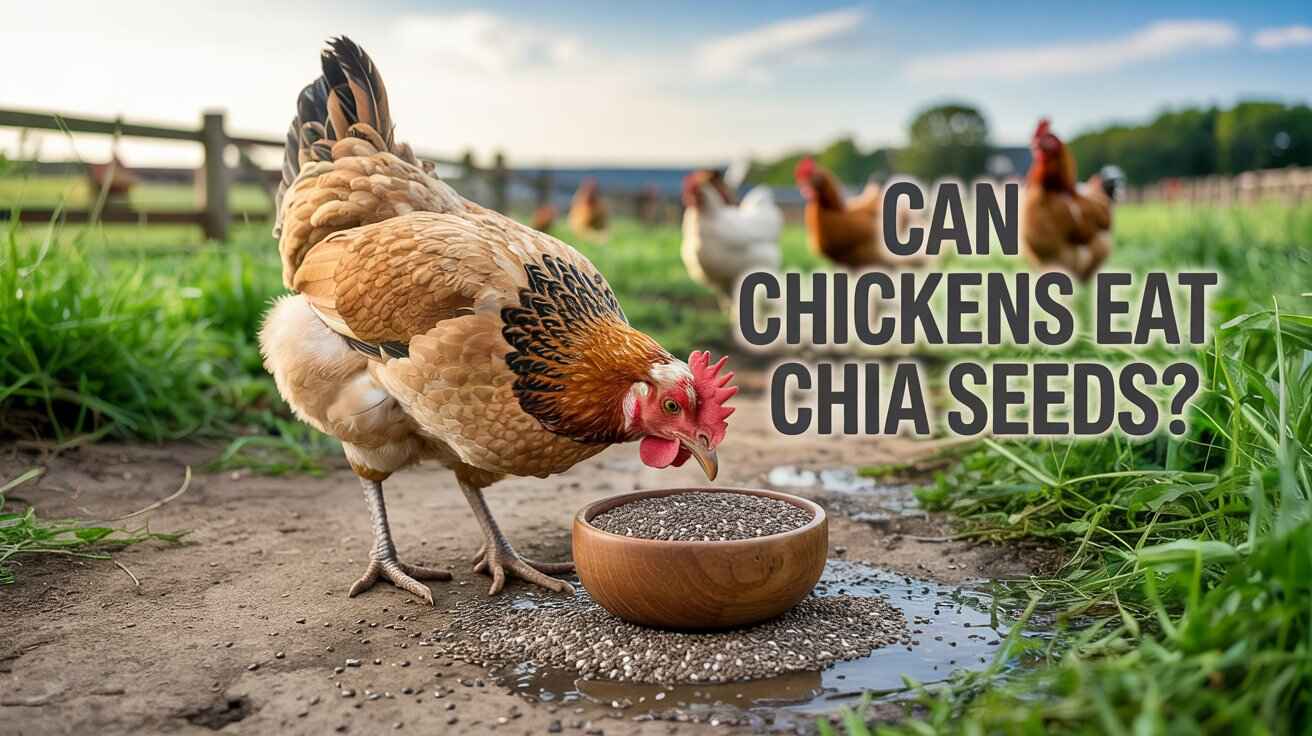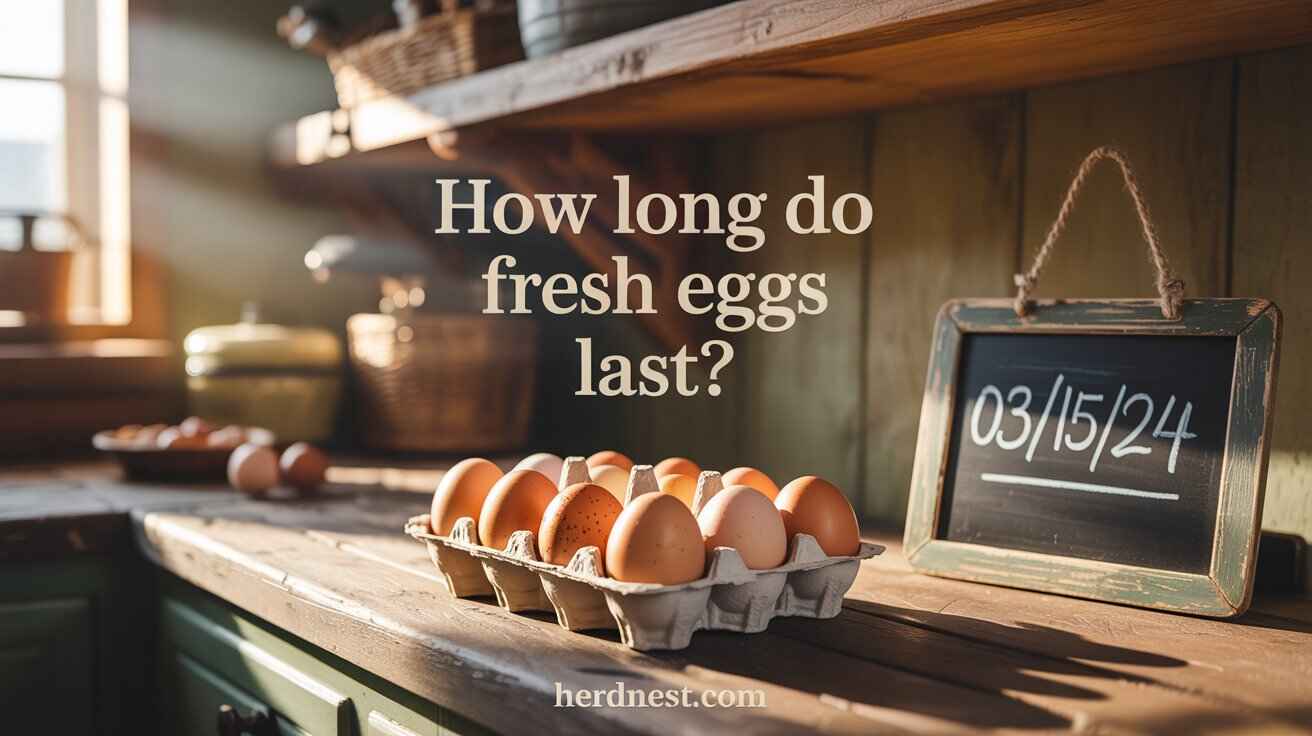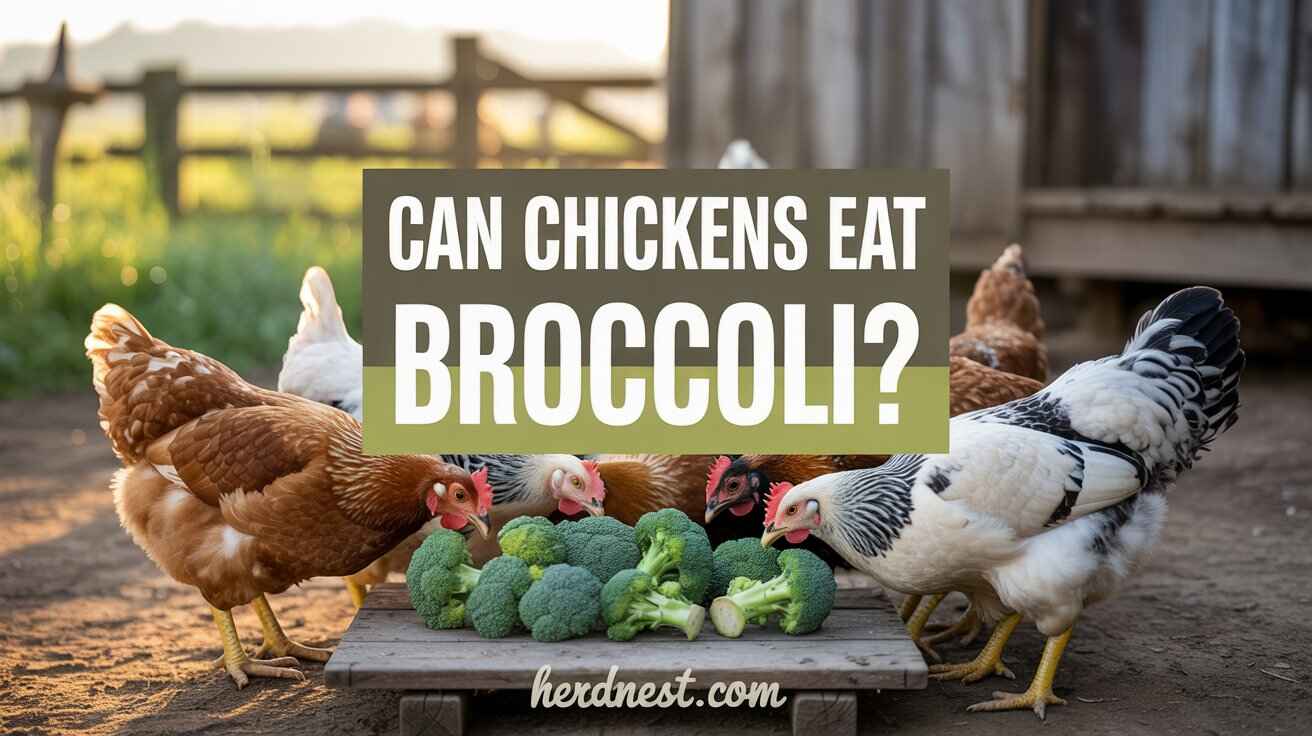When I first introduced chia seeds to my flock, I was curious about how they’d respond to this nutrient-packed superfood. Chickens are natural foragers, and when they encounter these tiny seeds or chia plants, they instinctively peck at them. The good news? These seeds are entirely edible for your chickens and can be a fantastic addition to their diet.
You can serve them fresh or dried, even experimenting with chia sprouts. Knowing how much to offer is essential—just a small handful of seeds daily for your flock will provide noticeable benefits without overwhelming their diet.
This nutrient-dense snack isn’t just for humans; it’s also a natural way to boost your chickens’ health. Whether sprinkled on their feed or grown as plants to forage, chia makes feeding time exciting and nutritious.
Table of Contents
ToggleCan Chickens Eat Chia Seeds Daily?
Feeding chia seeds to your chickens can be a healthy addition to their diet. These tiny seeds are packed with nutrients and offer several benefits when fed in moderation. While chickens can enjoy them daily, it’s essential to control the amount to avoid any adverse effects.
I’ve noticed that my flock thrives when I sprinkle a small portion of these seeds over their feed. It’s fascinating to learn where chia seeds come from and how they enhance a chicken’s overall health. However, be cautious, as overeating can lead to issues, so it’s worth digging into the right serving practices to keep them healthy and happy.
What Are Chia Seeds?
Chia seeds come from Salvia Hispanica, a desert plant in the mint family that thrives in the central and southern parts of Mexico. These oval seeds are small, about two millimeters in size, and are gray with spots of white and black.
Often called a superfood, they are packed with nutritional content beneficial for both humans and chickens. When soaked in water, they can absorb up to 12 times their weight, forming a mucilaginous coating that gives a unique texture to foods and beverages. This characteristic makes them versatile and appealing in a variety of uses.
Are Chia Seeds Good for Chickens?
Chia seeds are a fantastic addition to your flock’s diet, offering a mild and nutty flavor that pairs well with both sweet and savory dishes. These tiny seeds are packed with nutrients that your flock can greatly benefit from, making them a perfect choice for enhancing their overall health and well-being.
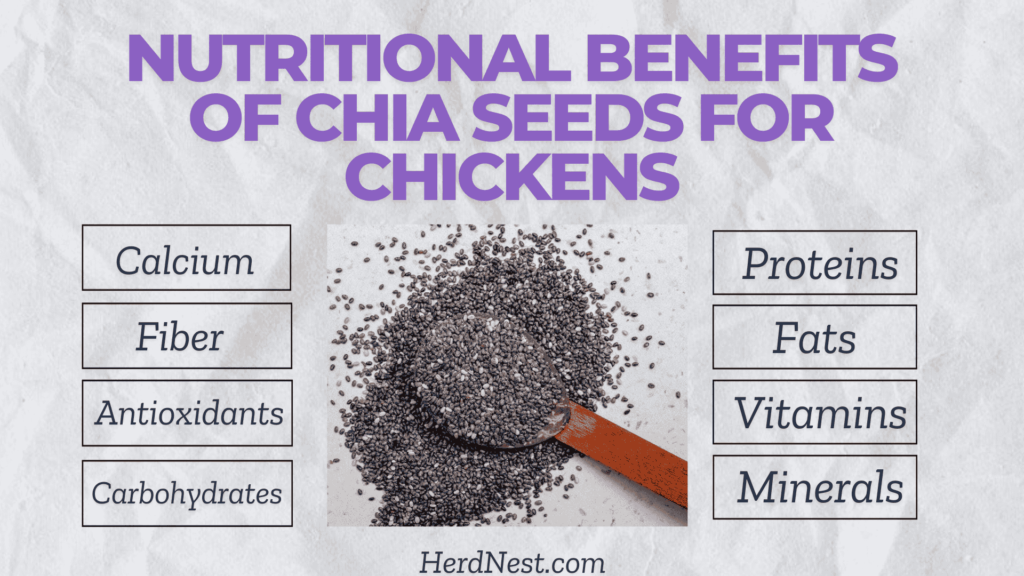
Nutritional Benefits of Chia Seeds for Chickens
Chia seeds are packed with essential nutritional elements that provide great benefits to your chickens. They are a natural source of vital nutrients, supporting overall health and enhancing your flock’s well-being, making them an excellent addition to their diet.
Calcium
Chia seeds are among the top sources of calcium, which is essential for laying chickens. A calcium deficiency can cause eggshells to become thin and prone to break, negatively affecting egg production. Along with foods like crushed oyster shells, chia seeds can help your chickens maintain the calcium levels they need to lay strong, healthy eggs.
Fiber
Chia seeds are rich in fiber, which plays a vital role in supporting your chickens’ intestinal health. Even a tiny amount can help them peck their way to better digestion, allowing them to extract vitamins and minerals more effectively from their food. However, too much consumption can lead to digestive health problems, such as constipation, so it’s important to keep their intake moderate while still enjoying its significant benefits.
Antioxidants
Chia seeds are packed with antioxidants, an essential nutrient that helps chickens fight free radicals and prevent cell damage, which could lead to issues like cancer.
These seeds also provide other benefits to your flock, including omega-3 and omega-6 fats, proteins, carbohydrates, calories, and essential minerals like selenium, manganese, magnesium, calcium, iron, phosphorus, and copper.
With a detailed breakdown of fat content, they include polyunsaturated, monounsaturated, saturated fat, and even small amounts of trans fat. The amount of these nutrients makes chia seeds a highly nutritious treat for chickens.
Carbohydrates
Carbohydrates, also called carbs, are essential for your flock as they provide the primary energy source by breaking down into glucose. This vital nutrient can be found in common foods like grains, starch, and even drinks, ensuring your chickens get the energy they need to stay active and healthy.
Proteins
Proteins are vital molecules formed by the building blocks of amino acids. They help build the muscles, nerves, beaks, cartilage, feathers, skin, and body tissue of chickens. Found in many foods, including chia seeds, as well as in insects and worms, proteins play a critical role in maintaining your flock’s overall health and growth.

Fats
Chia seeds are rich in fats, as shown in the table, and these different fats are an essential component in the growth of cell membranes and the production of hormones. Found in foods like meats, fish, and those containing natural oils or vegetable oils, fats play a crucial role in maintaining your flock’s health and energy.
Vitamins
Vitamins are vital for chickens, supporting their overall growth, reproduction, and proper body function. These nutrients aid in production and are naturally present in foods like carrots, yeast, beans, fish, spinach, banana, and chia seeds, making them an essential part of a balanced diet.
Minerals
Minerals are an essential chemical element that supports the internal organs of chickens. They play a key role in the digestive system, muscle function, and important chemical reactions, helping your flock stay healthy and active.
Can Chickens Eat Raw Chia Seeds?
Chickens are natural omnivores, meaning they can enjoy a variety of food, including items from plants and meat sources. Yes, they can eat chia seeds even when served raw, and it’s a beneficial addition to their diet.
However, it’s essential to manage their feeding carefully and set a limit on their consumption. Overfeeding, even with healthy foods, can affect the balance in your flock’s diet, so moderation is key to keeping them healthy and happy.
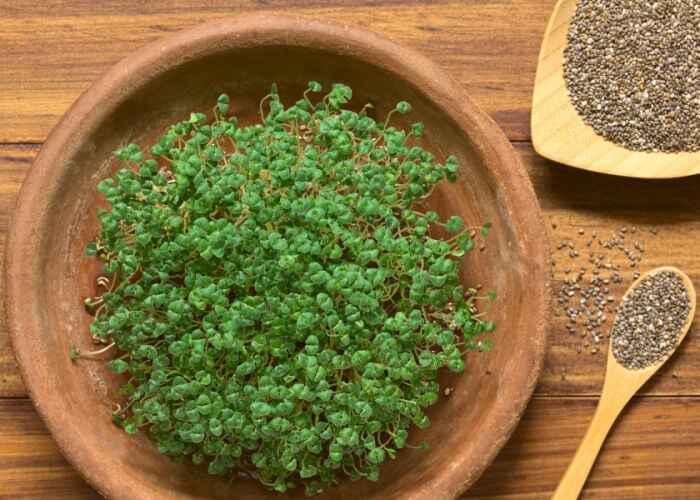
Can Chickens Eat Chia Sprouts?
Chia seed sprouts are perfectly safe for your chickens as they don’t contain toxins that could cause harm. These sprouts are rich in nutrients, making them a healthy addition to your flock’s diet. You can feed them fresh, toss them in a salad, or even roast them.
To grow them, simply spread the seeds on a paper towel or cloth dampened with water, then mist lightly. Place them in a closed container with drainage at the bottom. After about two to three days, the sprouts will be ready for your flocks to enjoy. These tiny sprouts pack a punch even when they start growing, making them a nutritious treat for your birds.
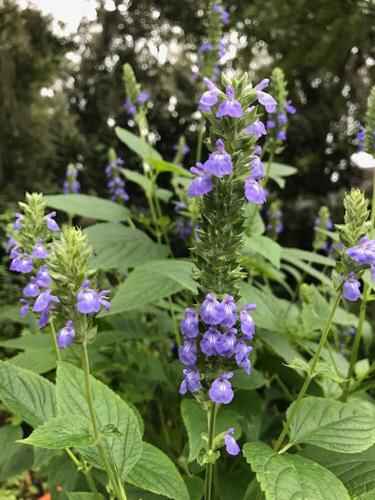
Can Chickens Eat Chia Plants?
The chia plant, also known as Salvia Hispanica, is entirely edible, including its leaves, seeds, and sprouts. You can pick it freshly from the plant and serve it raw, or you can cook it like spinach. It’s also versatile enough to add to a salad or even use in sandwiches.
As for your chickens, the answer is a resounding yes—it’s perfectly safe for them. Whether in your backyard or served directly, your flocks will enjoy this nutritious addition to their diet. Just be mindful of how you feed it to them to make it a treat they’ll love without any worry.
Can Chia Seeds Replace Pellet Mix?
Chia seeds are not just healthy for your chickens, but they can also act as an excellent alternative to your flock’s feeds. This is possible because these seeds contain all the nutrients required for a balanced diet. With their rich nutritional profile, they provide everything your flock needs to stay healthy and thriving. Let’s discuss more about these valuable seeds and their role in replacing traditional feeds.
How Much Chia Seeds Can Chickens Eat?
Chia seeds are rich in nutrients and perfect for a balanced diet, but they should be fed in moderation to prevent digestive problems. For mature and old chickens, a tablespoon is enough to meet their nutritional needs.
If you’re feeding adult chickens, you can add more, but only slightly. For chicks, a teaspoon is ideal, and it’s best to separate them from the adults to ensure proper feeding.
How Often Should Chia Seeds Be Consumed?
Chia seeds are best offered as chicken treats rather than as a primary feed. While feeding them daily is fine, as they’ll benefit from every seed, you should approach feeding chicks with caution. Wait until they are four weeks old, then gradually introduce chia seeds to avoid food shock and help them adjust to their diet.
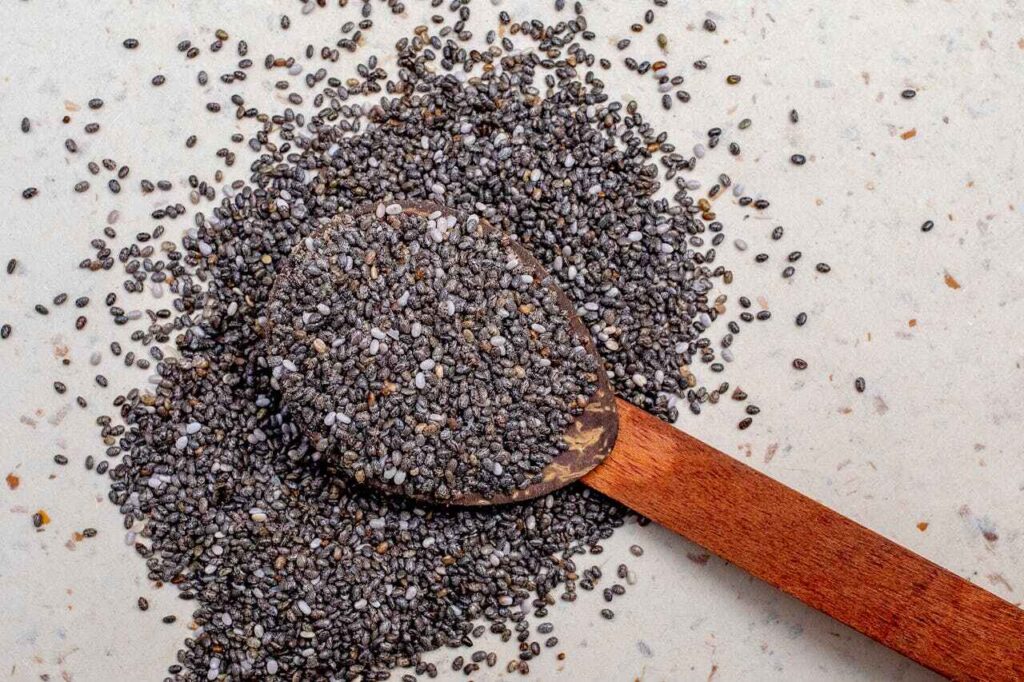
How to Feed Chickens Chia Seeds?
Chickens absolutely love picking at chia seeds. You can serve them to your flock in two ways, making feeding both enjoyable and nutritious for your birds.
Cooked Chia Seeds
There are many ways to prepare cooked chia seeds for your chickens. You can cook them by boiling alone or mixing them with other foods. After cooking, let the seeds soak for 10 minutes in water, which makes them easier to digest and gives them an oatmeal-like texture when submerged.
You can also add them to a pellet mixture for your flock or combine them with other ingredients. Be sure to stir thoroughly to avoid concentrated seed areas, and keep their chia seed intake below 5% of their diet to prevent bloating. Overfeeding is not advised for maintaining their health.
Uncooked Chia Seeds
Feeding your flock uncooked chia seeds is easy, but it’s important to make sure each bird consumes the right amount and never too much. Always provide drinking water for your hens to prevent choking, as they might see the seeds as a treat.
Final Recap
Chickens can eat chia seeds and even their leaves, but always in moderation, as too much consumption can cause digestive problems. These seeds are highly beneficial for your flock, being rich in calcium, fiber, and antioxidants, making them a fantastic addition to their chicken feed.
Sprouting chia seeds is another excellent option, as they retain their nutrients even after germination. If you’re exploring other edible vegetables like cauliflower for your flock, consider checking out how they can fit into your chicken coop routine.
